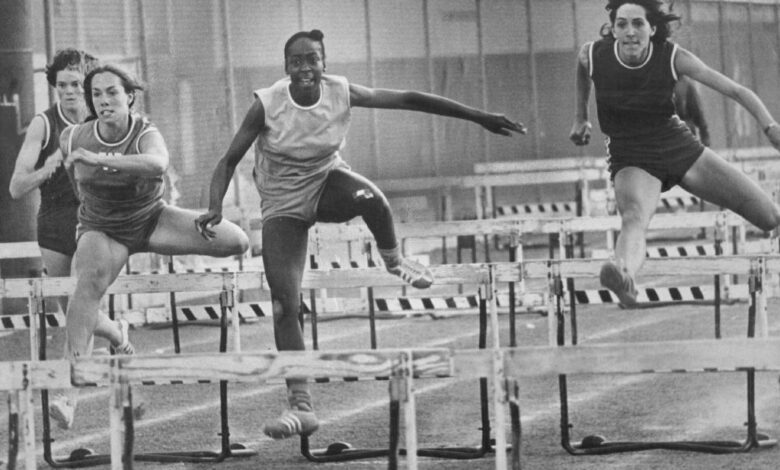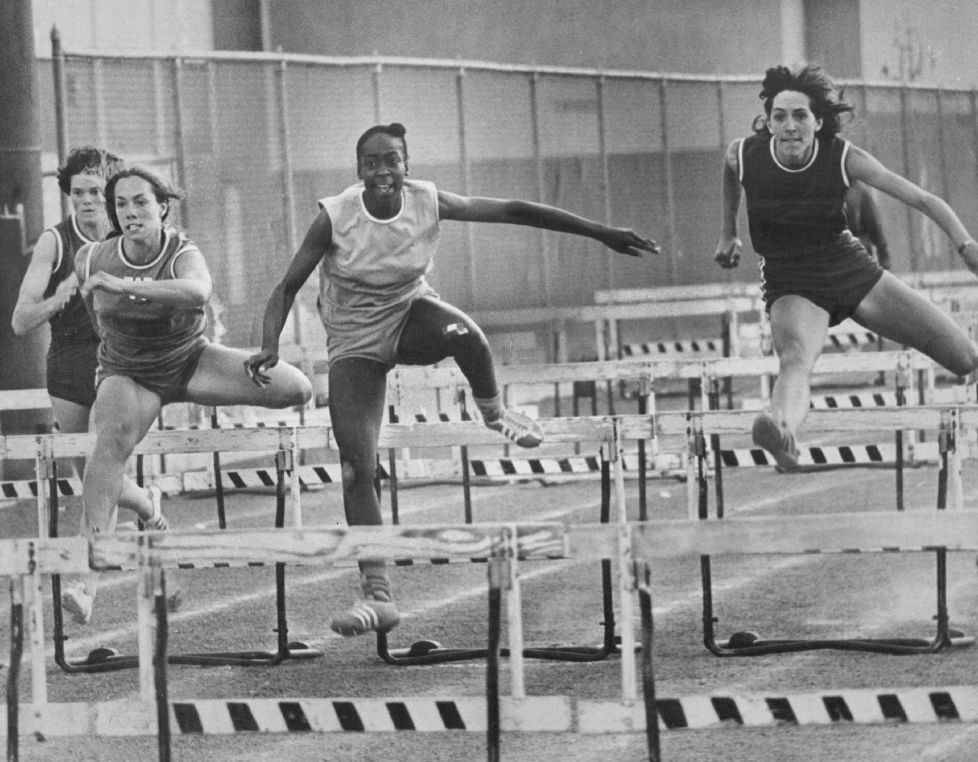How Title IX shaped women’s sports, education, opportunities in Colorado

[ad_1]

Margaret Randolph, center, of Denver Manual High School competes in a AAA 80yd Low Hurdles event May 17, 1975.
It’s been 50 years since the 37 words that make up Title IX were signed into law. The impact it’s had on Colorado and the country at large since its passage has been immense.
Doors that had once been closed in athletics and academia were suddenly jarred loose, making way for five decades of progress that have allowed Colorado women to reach heights once believed to be unreachable. Yet inequities remain in a state that’s produced its fair share of elite female athletes but still doesn’t have a major professional women’s sports team within its borders.
As Title IX approaches its 50th birthday, The Denver Post series looks back at some of Colorado’s greatest female athletes, examines the effect the landmark legislation has had on the state and also looks ahead to an uncertain future.
Colorado is producing some of the world’s best female athletes 50 years after embracing Title IX
As Title IX hits its 50th anniversary, The Denver Post celebrates the legacy of Colorado’s best female athletes and how a state with a progressive attitude toward women’s sports allowed players to succeed. Read more…
What will it take to bring women’s professional sports to Colorado?
Colorado does not have any major women’s sports leagues: NWSL, PHF or WNBA. Its absence is especially glaring in pro soccer with several homegrown talents — Lindsey Horan, Jaelin Howell, Mallory Pugh and Sophia Smith. Noelle Phillips and Kyle Fredrickson explore what it would take to bring a pro team to the Mile High City. Read more…
Colorado women continue to face harassment, discrimination in schools despite five decades of “equality” under Title IX
Title IX has evolved since it was signed in 1972. Noelle Phillips reports on how the law forces schools to respond to sexual discrimination, harassment or assault and how schools continue to fall short when it comes to protecting female students. Read more…
Future of women’s college sports uncertain as battle over money threatens amateur model
Will the equal opportunities for women required by Title IX be preserved as non-revenue-producing sports find themselves endangered by the free market for talent? Sean Keeler dives into the issue. Read more…
Regis Jesuit star Fran Belibi says she couldn’t make the leap to starring in commercials without Title IX as springboard
While individual athletes such as Stanford’s Fran Belibi have attracted the interest of companies entering NIL deals, female student-athlete NIL dollars and opportunities still lag behind their male counterparts. Read more…
The Top 50 most influential women in Colorado sports history
In honor of the 50th anniversary of the passage of Title IX, we ranked the Top 50 most influential women in Colorado sports history. Check back on Friday to read the list. Read more…
Title IX through the decades
In the five decades since Title IX was passed, here are five athletes who helped shape their time:
Photo via Denver Craigslist
A women’s basketball team known as the Breckenridge Basket Ball Association sit together for a photo taken circa 1892, one year after James Naismith wrote the original 13 rules of basketball. Newspaper archives show women started playing the sport in the Colorado mining town in 1892. Kris Ann Knish, archivist and museum collections manager at the Breckenridge Heritage Association, said she and other researchers identified two of the players as sisters, Tonnie Finding, seated on the bottom left, and Agnes Finding, kneeling at far right, who were daughters of a prominent family in town.
Vintage photo found in a Denver thrift store shows a Victorian-era women’s basketball team played in Colorado just one year after the game was invented
The history behind this vintage photo shows that the team played its first game in 1892, just one year after basketball was invented.
Opinion: It most certainly wasn’t equal, but my high school teams meant everything
Playing sports just 12 years after Title IX was signed into law involved unequal treatment and uninterested coaches. Times have changed since then and Noelle Phillips reflects on the experience and wonders what could have been if she’d been born a decade later. Read more…
View more on
The Denver Post
[ad_2]
Read More



